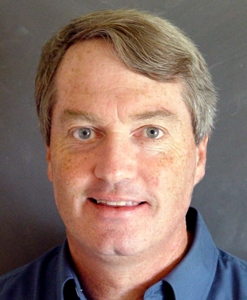Nov 7 2013
UC Santa Barbara physics professor and permanent member of the university's Kavli Institute for Theoretical Physics (KITP) Joseph Polchinski is one of several laureates for the Milner Foundation's 2014 Physics Frontiers Prize. According to the organization, this prize recognizes "transformative achievements in the field of fundamental physics and aim(s) to provide recipients with more freedom and opportunity to pursue future accomplishments." This is Polchinski's second win in two years.
 Joseph Polchinski
Joseph Polchinski
"It's an honor and a surprise to receive this for a second time, especially because the selectors are some of the leading physicists in the world," said Polchinski. "This award certainly would not have happened without the stimulating environment at UCSB and the Kavli Institute for Theoretical Physics. I'd like to acknowledge all my colleagues, but especially my collaborator Don Marolf, who has helped generate some recent excitement."
Polchinski was nominated for his contributions to quantum field theory and string theory. His discovery of D-branes — a type of membrane in string theory — has led to advances in the understanding of string theory and quantum gravity.
Receipt of the Physics Frontiers prize puts Polchinski and fellow winners — Michael B. Green of the University of Cambridge and John H. Schwarz of the California Institute of Technology; and Andrew Strominger and Cumrun Vafa of Harvard University — in the running for the $3 million 2014 Fundamental Physics Prize. Polchinski was also a 2013 Physics Frontiers Prize winner; however the top prize, the 2013 Fundamental Physics Prize, went to Princeton University professor Alexander Polyakov. The selection committee for the 2014 Physics Frontiers Prize, which includes Polyakov and other Physics Frontiers Prize laureates, renominated Polchinski for the award.
"It is wonderful that Joe continues to be recognized for his ongoing fundamental work in theoretical physics," said Lars Bildsten, physics professor and the director of KITP. "His recent work with UCSB colleagues on the nature of black holes generated so much excitement that we needed to organize a two-week KITP program just to bring together all the world's experts to debate their hypothesis!"
The 2014 Fundamental Physics Prize will be unveiled at a gala ceremony in San Francisco on Dec. 12, 2013. Frontier Prize laureates who do not win the Fundamental Physics Prize receive $300,000.